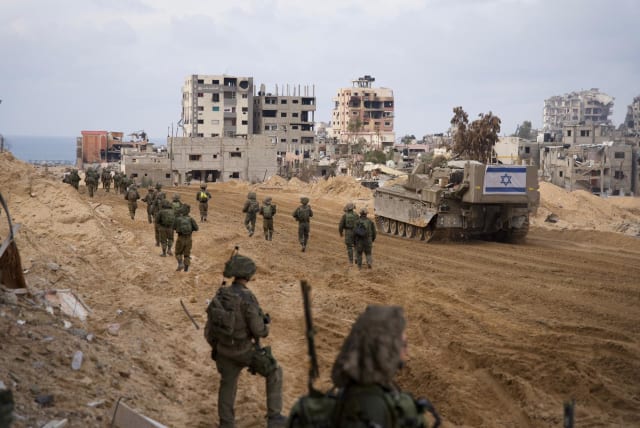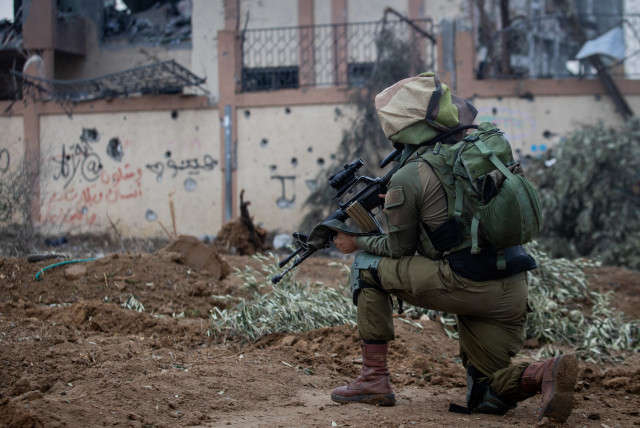Who takes the pictures on the battlefield of the Israel-Hamas war?

Combat soldiers who are behind the camera taking this footage have undergone special photography training and a course in spokesperson duties.
Answering the widespread curiosity of the public, the IDF has explained how they were able to take thousands of pictures and videos from the frontlines of the battlefield during the Israel-Hamas war.
Since the beginning of the Israel-Hamas war, IDF images and videos have been released on a daily basis that document operations and events and circulate in the news and social media.
Combat soldiers who are behind the camera taking this footage have undergone special photography training and a course in spokesperson duties.
After training, they are sent to the battlefield, where they assume the dual roles of photographer and soldier.
When explaining the complexity of his role, one of the sergeants reflected that they "essentially have two weapons: one that shoots bullets and one that captures images."
During combat, soldiers in this role are required to assess every situation and be able to determine when to fire their guns and when it is the right time to document the events that are occurring around them on the battlefield.
"Sometimes I need to disconnect from the battle that is unfolding in front of me and look at the bigger picture," the sergeant continued to explain.
The role of these soldiers during the war
The photographer soldiers are tasked with taking pictures to document the highly intense situations they encounter. The sergeant gave an example of a time when his unit entered a children's room and found a large quantity of ammunition within it - understanding the importance of documenting such a finding.
In addition to situations on the battlefield, photographers also document moments such as the lighting of menorah candles in Gaza during the Jewish holiday of Hannukah. "I photographed all the soldiers around the menorah. Beyond the message conveyed, the photos greatly helped boost the soldiers' morale," the sergeant explained.
Despite the challenges of his role, the sergeant expressed the sense of fulfillment he felt from it. "I went into Gaza knowing I am doing something bigger than myself," he concluded.
Jerusalem Post Store
`; document.getElementById("linkPremium").innerHTML = cont; var divWithLink = document.getElementById("premium-link"); if (divWithLink !== null && divWithLink !== 'undefined') { divWithLink.style.border = "solid 1px #cb0f3e"; divWithLink.style.textAlign = "center"; divWithLink.style.marginBottom = "15px"; divWithLink.style.marginTop = "15px"; divWithLink.style.width = "100%"; divWithLink.style.backgroundColor = "#122952"; divWithLink.style.color = "#ffffff"; divWithLink.style.lineHeight = "1.5"; } } (function (v, i) { });

